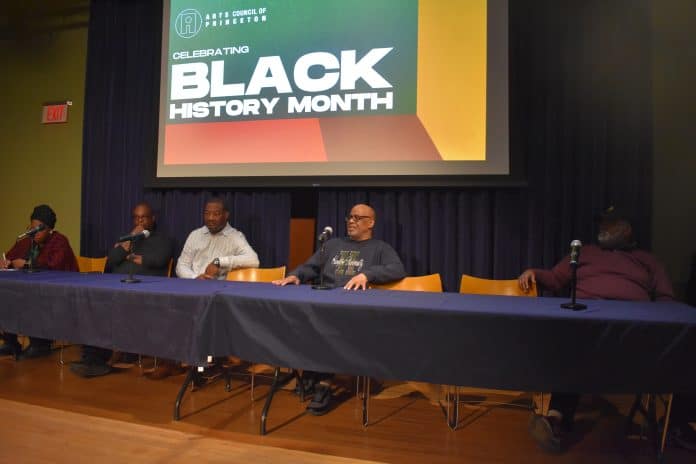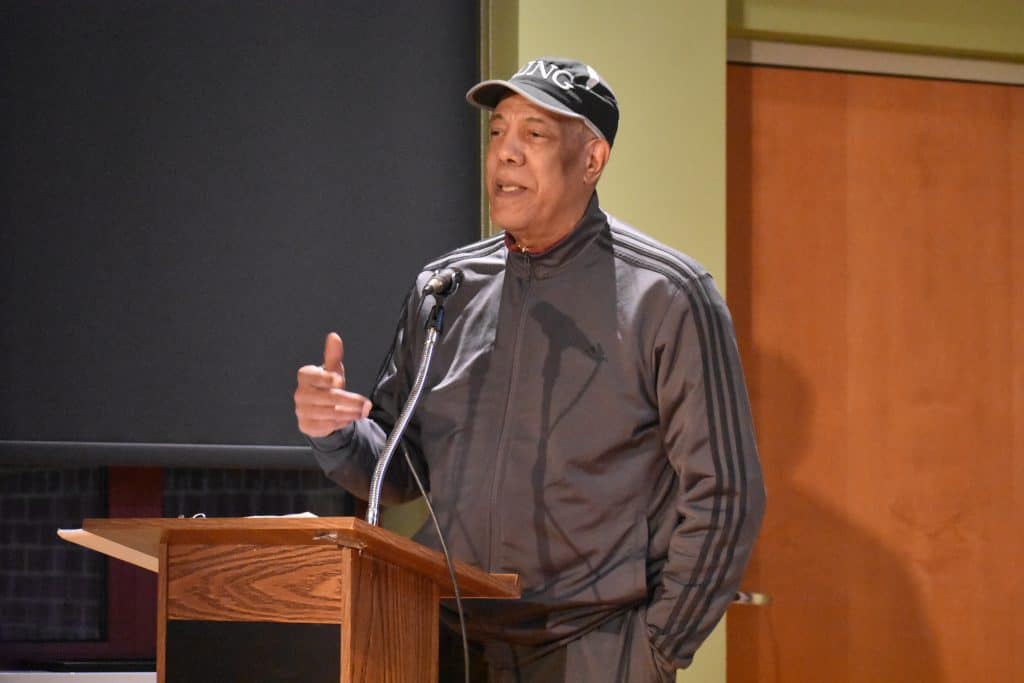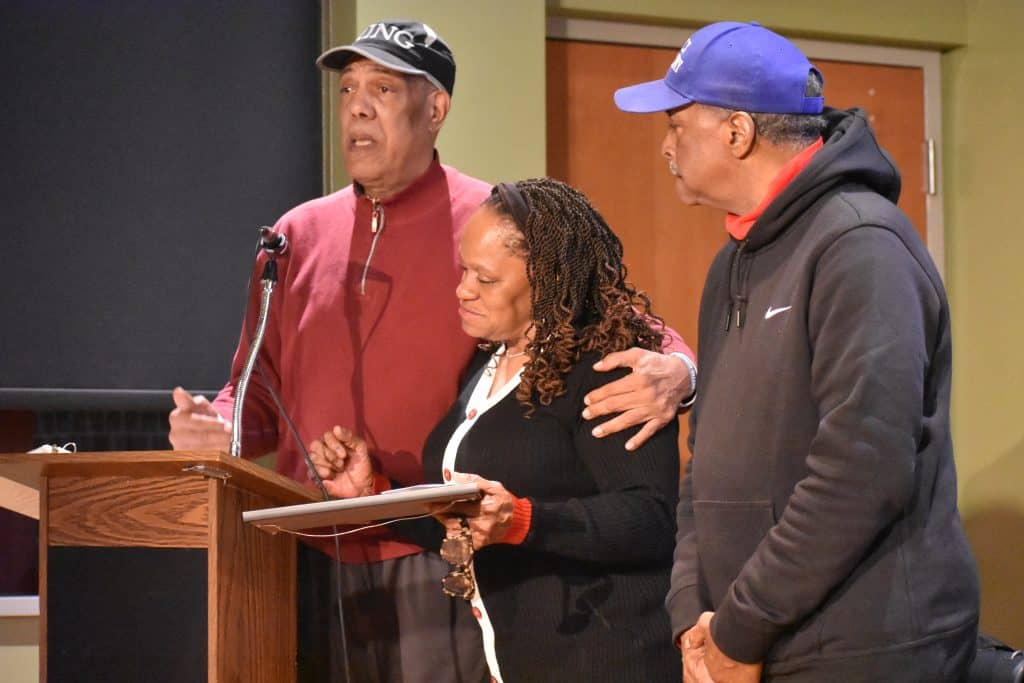
Princeton African American residents shared their stories about not only growing up in Princeton, but more specifically the Witherspoon Jackson community.
A panel and audience discussion titled, “Black Angels, Ancestors and Heritage: Reflections on the People & Growing Up in the Witherspoon Jackson Neighborhood” was held at the Arts Council of Princeton and honored memories of the Witherspoon Jackson community, heritage, ancestors, and Black residents’ contributions to Princeton’s history.
“It is important in churches, sororities, fraternities, school classrooms, dinner tables and other places that we as Black Americans find ourselves and that we need to start and continue to tell our stories, especially to our children because it is becoming their turn to save the world,” said John Bailey, founder and organizer of Joint Effort-Princeton Safe Streets.

John Bailey (center), founder and organizer of Joint Effort Safe Streets, delivers remarks inside the Arts Council.
The event in February, which was sponsored by Joint Effort Princeton Safe Streets Program, the Arts Council, Witherspoon Jackson Neighborhood Association, and Princeton Family and Friends, was part of events which closed out Black History Month.
“I mentioned with all the chaos, confusion, and contradictions going on in the country and the push back against Black history, Black excellence, diversity, equity and inclusion, and knowable truth, it is important to have celebration and remembrance activities like this for historical continuity and real feeling of self-concept in particular black self-concept,” Bailey said.
“Black self-concept is not about how the world sees us, but rather how we see ourselves in the world.”
Honored during the evening event were Tommy and Joanna Parker, who have impacted lives of Princeton residents, youth and the Witherspoon Jackson community.
Joanne Parker accepted a plaque awarded to them from Joint Effort Safe Streets, which recognized the Parkers’ decades of community service and contributions to Princeton and the Witherspoon Jackson community.
“Thank you very much and I really appreciate this with Tommy and my family. We have nothing but love for you too,” Parker said.
Bailey not only presented Joanne Parker with a plaque, but a check for $1,000 from Joint Effort Safe Streets.

Joanne Parker (center) accepts Joint Effort Safe Streets plaque for her and husband Tommy Parker service to the community.
Arts Council Board of Trustee Vice President John Thompson, Francis Dean Boyer, and Earl McQueen each shared about their experience in the Witherspoon Jackson neighborhood and its impact on them.
“This building. One of the things I shared first prior to agreeing to be on the board, I told them my agenda consisted of re-introducing the building to the community,” Thompson said, in expressing his memory of the Arts Council building as a former “Y” and youth center.
“I spent a lot of time in this building playing foosball and pool in the basement, doing karate, watching movies, and being a part of dances to fast forward 40-something years and be part of the board and eventually part of the leadership of the board is a bit overwhelming, but I couldn’t be prouder.”
Thompson explained that people in the Witherspoon Jackson community have either directly or indirectly affected who he has become and what he is to the community now.
“It is my responsibility now to pass those things along and hope the younger generation can take something from me and we can continue to have more representation on the board from this community.”
Dean Boyer shared how blessed he feels to be a part of the community.
“So many people played a major role in who I am today,” he said. “A lot of these men are in this room. John Bailey accepted me in to be part of Joint Effort; Earl McQueen was like a big brother; [and] Leighton Newlin, who was also a big brother and still is to this day.”
Boyer said he still lives in the community where so many people played a part.
“One of the stories I want to share is as I got older, and Jim Floyd was older, he used to call me time from time to ask me what I was doing. I’d say, ‘Nothing Mr. Floyd, what is going on,’ he would say, ‘Are you hungry?’ and said, ‘Let’s go to the diner and have breakfast,'” Boyer recalled, explaining that this was one example of being blessed in the Witherspoon Jackson community.
“We would go to Princeton diner and sit and have breakfast. He would talk about Princeton to me, and his life and I look back on that and wish I recorded some of those conversations that he shared with me.”
McQueen noted that there were a lot of influences in Princeton and a lot of people contributed to those influences.
“I played baseball growing up in programs affiliated with Jim Floyd and Princeton University. It was a summer engineering program that started me off on what I want to do with my life,” he recalled.
“I enjoyed going with guys in the community and we went over to Princeton University, and we were in all kinds of engineering programs for that summer. What I really enjoyed about that was the comradery of the brothers from the neighborhood and learning about different opportunities through Jim Floyd and professors over at Princeton University.”
Those experiences allowed McQueen to meet people around the neighborhood and also in the long run, a career in architecture.
“I encourage the young people to get to know people in the neighborhood, because there is a wealth of information around Princeton,” he said.
“[It] would teach you a lot of things,” he said.

